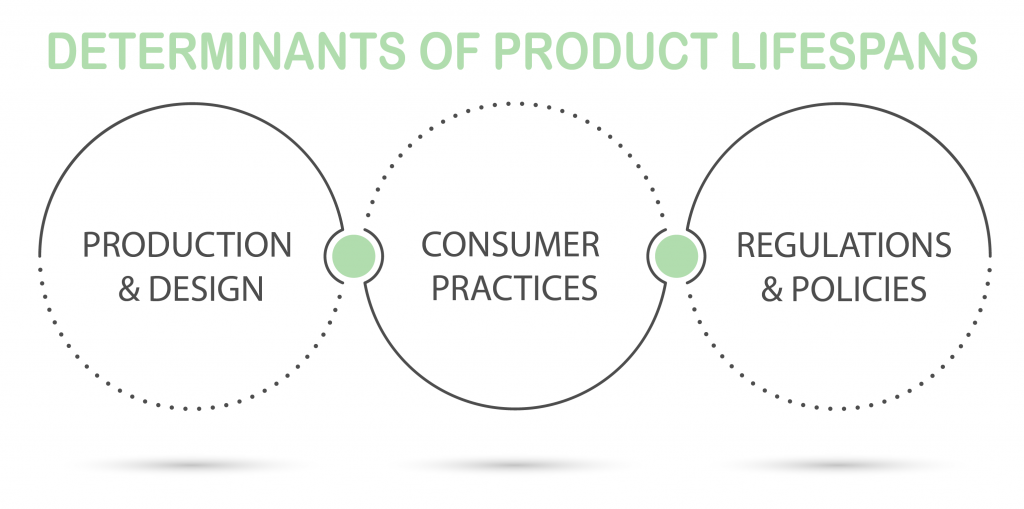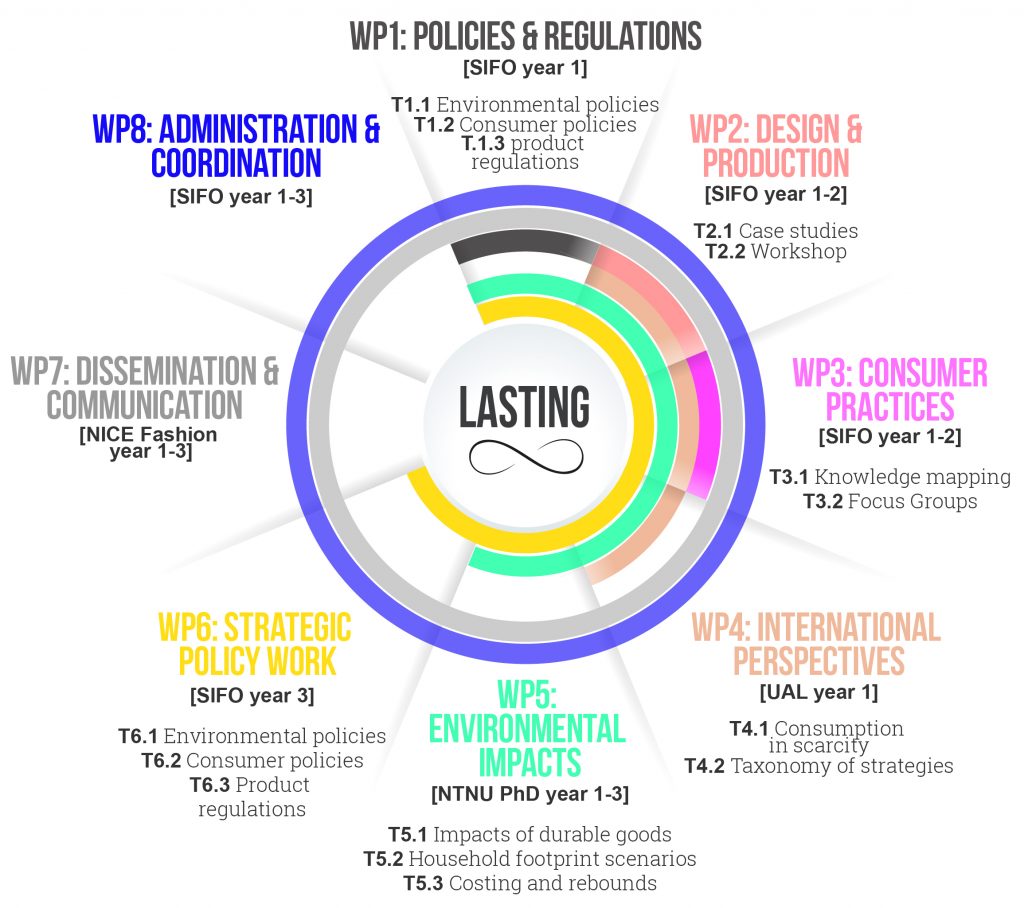Sustainable prosperity through product durability
How can the lifespans of consumer goods be increased?
The question is critical because evidence suggests that longer lasting products lead to less materials extraction, lower levels of pollution and less energy use in all the phases of a product’s life, including transportation.
Yet despite this product longevity has been largely absent in the environmental discourse and public debate, nor does it figure on the top of the agendas of industries or private households. Indeed, the present system encourages replacement of existing goods with new products rather than maintaining, repairing or adjusting the current ones.
LASTING is a research project led by Consumption Research Norway at Oslo Metropolitan University. Funded by the Research Council of Norway. Through studying clothing and textiles, furniture and home appliances, LASTING will investigate how to keep the value of products, materials and resources high for as long as possible through a holistic approach including policies and regulations, production and design, and consumer practices. It will also promote lifespans of products as a crucial element of the environmental discourse, and by influencing central actors and decision makers to implement effective political means enforcing product quality and consumer rights.
The project will generate interdisciplinary knowledge to measure the significance of product durability. Moreover, it will unite businesses that focus on product durability, develop new ideas and prospects, and demonstrate how lifespans can be part of a sustainable business models.

LASTING is organized in eight Work Packages (WPs). We will start by studying why product longevity has been absent in the environmental discourse and public debate, as well as from stakeholders’ and producers’ focus (WP1). The following research areas will examine how companies work with increased product lifespans (WP2), how consumers engage in prolonging product lifespans in their practices in Norway (WP3), and the Global South (WP4), and what confluence of these factors can be envisioned in order to reduce environmental impacts (WP5). Finally, we will explore how increased longevity can be operationalized and thus implemented in policies, business strategies, product design, and consumer lifestyles (WP6). Dissemination towards various audiences (WP7) will complete the Project. The project is coordinated and administrated throughout in WP8.
